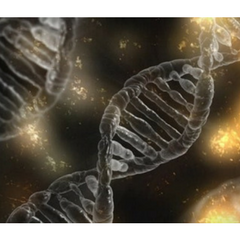
Understanding Angelman Syndrome and How to Celebrate Angelman Awareness Day
The month of February is Rare Disease month and number of days highlighting awareness of many little-known illnesses are celebrated. February 15th is Angelman Syndrome Awareness day and because it is so rare – affecting between 1 in 12,000 to 1 in 20,000 people - we wanted to share some information on it.
As well as highlighting some of the symptoms and aspects of the disease, we also have a few ideas of how to celebrate Angelman Awareness Day and increase people’s understanding of it.

What is Angelman Syndrome?
Angelman Syndrome is a genetic disease that mainly occurs by chance at conception, when there is a problem with or absence of the UBE3A gene inherited by the mother. It was identified in 1965 by a British Doctor, Harry Angelman.
Angelman Syndrome isn’t typically identified at birth, but developmental milestones being missed between 6 and 12 months of age can be a sign that a child has the disorder. Diagnosis is made through a blood test, and it is important to understand the exact genetic change that caused their illness in order to determine if siblings or family members could carry the disease.
Angelman Syndrome can have a number of lifelong symptoms and those who suffer from it will need support throughout their lives.
The most common characteristics of Angelman Syndrome are:
- Developmental delay.
- Speech impairment with no or minimal use of words.
- People with Angelman can understand and communicate though and tend to have stronger non-verbal communication skills than verbal ones.
- Problems with movement and/or balance disorder and limb tremors.
- Apparently happy demeanour, frequent laughter and smiling.
- Excitable personality with hand flapping movements.
- Short attention span.
There are other symptoms experienced by some people diagnosed with Angelman Syndrome. And, while some people will learn to walk unaided, there are some who won’t.
Before Dr. Angelman formally identified and diagnosed the disorder, it was referred to as ‘Happy Puppet Syndrome’, reflecting the often jerky movements and happy faces of those with it.
But, while people with the illness will always need some support and care, one thing that is almost always said of people with Angelman Syndrome is that they are extremely loving and sociable. The director of Rogue One Gareth Edward’s niece has Angelman Syndrome and he made this short film about it, for ASSERT.
How to Celebrate Angelman Syndrome Awareness Day

As with many rare disease awareness days, the idea behind them is to share information about each illness so people understand a bit more and are less scared or unsure about it.
For Angelman Syndrome Awareness Day the specific purpose, aside from raising awareness about the condition, is:
- Encourage fundraising in all countries for different Angelman charities.
- Promote research and education on the illness.
- To remember people who had Angelmans but are no longer with us.
You can do this through a number of ways. In America, there is an annual Angelman Syndrome Foundation Walk, so if you live there you could sign up for that. If you don’t live in the US, why not arrange your own walk to raise money or just to get people together and talking about Angelman Syndrome?
Another idea is to contribute photos, video’s or links to the Facebook International Angelman Syndrome page.
Or, speak to your children’s school or teacher. If your child with the illness goes to a special needs school, but has siblings who don’t why not see if they could do a short presentation to their class about Angelman Syndrome. It would certainly be a good way to help more, young people learn and understand a bit more about the rare disease.
If you’re interested in learning more about Angelman Syndrome, here are a few links where you can do further reading and research.
Useful resources:
http://angelmanuk.org/angelman-syndrome-uk-support-education-research-trust-assert/
https://rarediseases.org/rare-diseases/angelman-syndrome/
http://www.mayoclinic.org/diseases-conditions/angelman-syndrome/home/ovc-20307374

